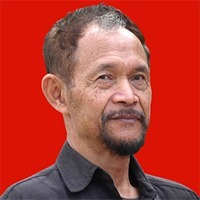Politicians
Tuesday, October 8, 2019
arsip tempo : 171403415282.

The next morning the police made inquiries. “When you found the victims, were they all dead?”
One of the villagers replied: “Well, they said they were not dead yet, Sir. But they were politicians, after all.”
THERE are many jokes about politicians, many of them harsh. This might be unfair (not all politicians are loathsome), but might also be true. What is clear is that these jokes do not come out of nowhere. In
...
Subscribe to continue reading.
We craft news with stories.
 For the benefits of subscribing to Digital Tempo, See More
For the benefits of subscribing to Digital Tempo, See More








